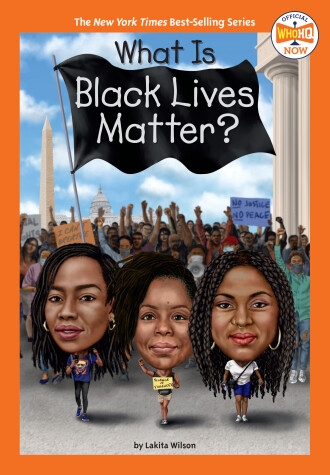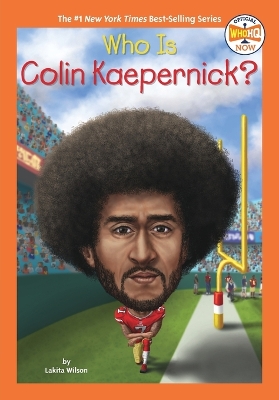Who HQ Now
2 total works
From the #1 New York Times bestselling series comes the latest title in the Who HQ Now format for trending topics. It tells the history of a political and social movement that advocates for non-violent civil disobedience and protests against incidents of police brutality--and all racially motivated violence--against Black people.
When a Black teenager named Trayvon Martin was senselessly killed in 2012, the African American community called for his murderer to be held accountable. But like many other racially sparked incidents in the past, his killer walked free. People looked for justice and healing in the moment. They turned to social media and a simple yet powerful hashtag emerged, #BlackLivesMatter.
The message grew into an international movement and has now become the rallying cry during protests against police brutality and racial acts of violence. The movement gained even more attention and support in 2020 when it called for police reform in the United States after the police-related murder of George Floyd.
When a Black teenager named Trayvon Martin was senselessly killed in 2012, the African American community called for his murderer to be held accountable. But like many other racially sparked incidents in the past, his killer walked free. People looked for justice and healing in the moment. They turned to social media and a simple yet powerful hashtag emerged, #BlackLivesMatter.
The message grew into an international movement and has now become the rallying cry during protests against police brutality and racial acts of violence. The movement gained even more attention and support in 2020 when it called for police reform in the United States after the police-related murder of George Floyd.
Learn about the inspiring life and career of professional football player and activist Colin Kaepernick in the new Who HQ Now format featuring newsmakers and trending topics.
On August 14, 2016, NFL quarterback Colin Kaepernick began a protest when he refused to stand for the national anthem. He wanted to make a statement about the oppression of people of color in the United States after he had spent a summer speaking out against police brutality. After playing professional football for six seasons, that would become Colin Kaepernick's last season in the NFL, but he would go on to become one of the most prominent activists of today. Colin believed that speaking out against racism was far bigger than football, and other athletes agreed with him. Today, hundreds of athletes -- from high schools to professional teams -- still kneel during the national anthem to protest the treatment of people of color in America.
Discover more about Colin Kaepernick's story in this addition to the New York Times bestselling series.
On August 14, 2016, NFL quarterback Colin Kaepernick began a protest when he refused to stand for the national anthem. He wanted to make a statement about the oppression of people of color in the United States after he had spent a summer speaking out against police brutality. After playing professional football for six seasons, that would become Colin Kaepernick's last season in the NFL, but he would go on to become one of the most prominent activists of today. Colin believed that speaking out against racism was far bigger than football, and other athletes agreed with him. Today, hundreds of athletes -- from high schools to professional teams -- still kneel during the national anthem to protest the treatment of people of color in America.
Discover more about Colin Kaepernick's story in this addition to the New York Times bestselling series.

